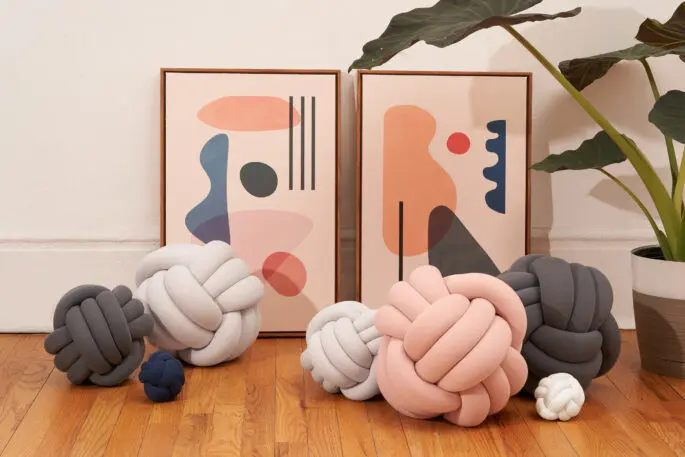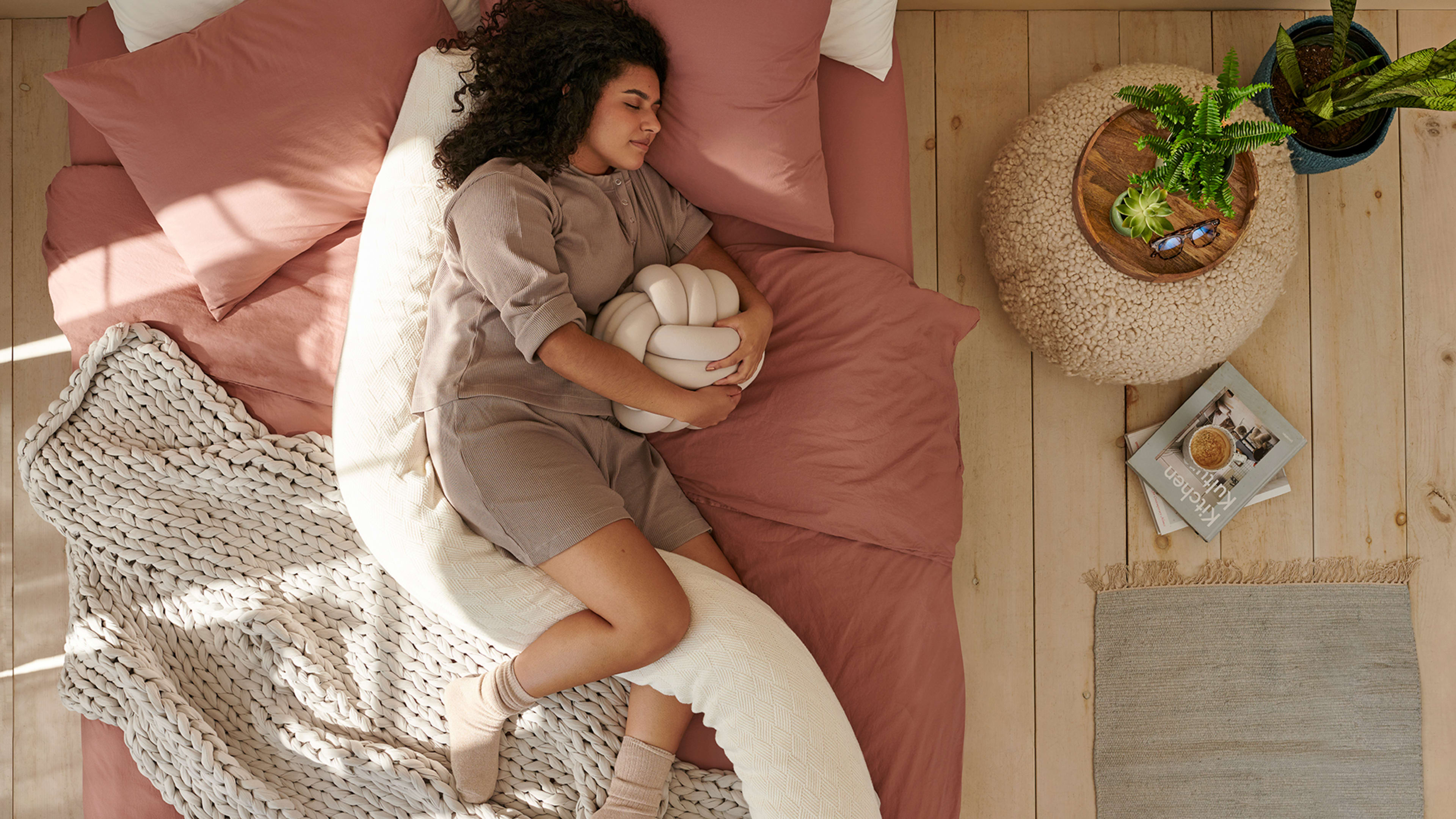Step aside, weighted blankets. There’s a new stress-relieving tool to place on top of you (or, in this case, to place yourself around).

Bearaby, a three-year-old startup famous for its knit weighted blankets, is on a mission to develop products that will promote relaxation. It has just launched a collection of heavy pillows shaped like knots that are designed to be like enormous stress balls, allowing you to hug and squeeze away tension throughout the day. In keeping with the brand’s commitment to sustainability, it has developed its own proprietary material known as Melofoam, made from rubber tree sap that can be molded into all kinds of shapes.
Kathrin Hamm began her career as a World Bank economist who traveled the world. With her hectic travel schedule and perpetual jet lag, she developed insomnia, but nothing she tried helped her until she came across a weighted blanket; she feel asleep instantly under its heaviness and slept for hours. She was surprised that something as simple and drug-free would induce so much sleep, but after reading up about it, she discovered that there was a lot of scientific research–particularly around children with sensory issues–that feeling pressure on the body reduces the stress hormone cortisol and releases the relaxation hormone serotonin.

Bearaby’s weighted blankets, known as the Napper, have become iconic for their knit design. But now, Hamm is interested in exploring what other products might support people in their quest for a good night of sleep. The new pillows, which the brand has dubbed Huggets, are also inspired by research from child therapists.
Experts who work with children with autism or anxiety give their patients large balls which they can squeeze in order to soothe their senses. Hugging them creates the same sensation as hugging a person, promoting relaxation, and a knotted design on the exterior also encourages fidgeting, which can also reduce stress. “These products exist on the market, but they aren’t made with sustainability or design in mind,” says Hamm. “My thought was that by making them beautiful and eco-friendly, more people would want to use them, and they would promote relaxation and sleep.”
Bearaby’s Huggets are an elevated take on these “cuddle balls.” The brand has made them in three sizes (priced between $29 and $129) for different functions. The smallest one works like a stress ball, which you can squeeze with your hand when you’re tense; the largest one is a pillow that you can wrap your entire body around. Bearaby has also just launched a full-body pillow called a Cuddler, that costs $199, designed to wrap around your body while you’re sleeping. It’s like spooning, but without being woken up by your partner’s movements. “We discovered that we could create different molds for the Melofoam, which opened up a wide range of possibilities,” Hamm says.

Many sleep-related products on the market use a lot of plastic. Most weighted blankets are packed with plastic beads, and many cuddle balls and body pillows are made with synthetic latex (sometimes called styrene-butadiene rubber), which is also plastic. These materials will ultimately end up in a landfill where they won’t biodegrade, but break into tiny particles called microplastics that will pollute our environment. These materials are cheap, but they’re also unsustainable. Bearaby’s products, on the other hand, are at the higher, more expensive end of the market, but Hamm has found that they appeal to eco-friendly consumers.
Bearaby wants to stand out in the market by creating eco-friendly, plant-based products that will biodegrade. (Its blankets are made from cotton or bamboo based Tencel.) And the main ingredient of Melofoam, which makes up 97% of the material, is rubber tree sap that is collected in coconut shells and then gently steamed until it becomes solid.
The rubber trees that Bearaby uses are not cut down during harvest, and as a result they continue to absorb carbon from the atmosphere. The other 3% of the material consists of natural minerals which help thicken the sap into a foam that can be molded.
Recognize your brand’s excellence by applying to this year’s Brands That Matter Awards before the early-rate deadline, May 3.
